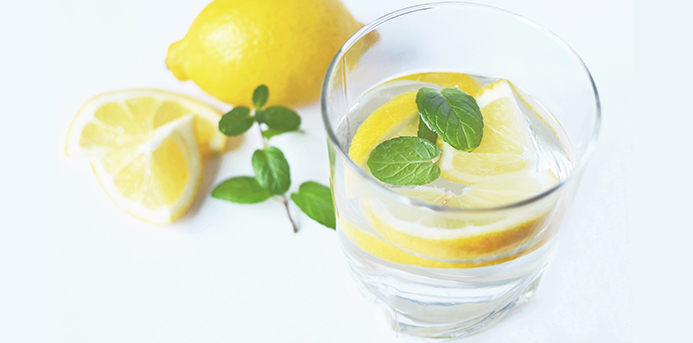In the ongoing search for the next great secret to better health — hello coconut oil, kale and juice cleanses — we often overlook the power of that one inexpensive and hugely beneficial ingredient that we use all day long: water. Everyone knows it’s important to drink a lot of the wet stuff, but that’s sometimes easier said than done when you’re constantly racing from one commitment to the next. Here’s why you should make hydration a priority.
Up to 60 percent of the human body is made up of water. Our bodies need it in order to properly function; adequate hydration aids the digestive and circulatory systems, allows the body to maintain a regular body temperature, transports nutrients and helps the kidneys remove waste.
“Water flushes toxins out of your body, carries nutrients to your cells, and provides moisture for your ear, nose and throat tissues,” explains Holly Herrington, a Registered Dietitian in the Center for Lifestyle Medicine at Northwestern Medical Faculty Foundation.
“Studies show that even mild dehydration can impair many aspects of brain function including mood, memory, concentration, anxiety and headaches.”
With the consequences of dehydration proving detrimental to even the most basic of the mind and body’s daily functions, it’s no surprise that failing to stay hydrated negatively impacts athletic performance too — even if you’re just a casual runner or trying to hit your workout goals at the gym.
“Hydration may be the most overlooked aspect of athletic training, although it is drawing more attention,” says Mark Wukas, New Trier head boys track & field coach.
When Wukas was a high school athlete in the early 70s, he says he never consciously hydrated and only drank water occasionally, but today he tries to set a different tone with the students he coaches.
“Now coaches and athletes see the importance of hydrating before a workout, during a workout and after a workout,” says Wukas. “Dehydration is no fun, and if it hits during competition it can ruin a race or practice.”
Water is obviously crucial for athletes in training, but what about people who are less active? How much water should the everyday person consume on a daily basis to ensure they reap all of water’s many benefits? Mary Daly of Pediatric Associates of the North Shore, recommends a daily water intake of eight 12-ounce glasses to maintain proper hydration and avoid dehydration.
Drinking that much water in a day might seem like a lot, but start small and you’ll easily turn hydration into a habit. Daly suggests drinking a glass of water before each meal, noting that people are often just thirsty when they think they are hungry. Water increases satiety, so drinking a glass of water before each meal can help with portion control.
Downing a few extra glasses of water isn’t the only way to stay hydrated, though. Many fruits and vegetables are also good sources of H2O.
“About 20 percent of our fluid intake comes from foods,” says Herrington. “Foods with high water content are typically lower in calories, require more chewing, and are absorbed more slowly by the body, which helps you feel more full.”
Healthy diets tend to revolve around adequate hydration for a reason. When we drink water, it is easier to avoid high-calorie beverages and overeating at meals.
“More water does not automatically mean you will lose weight,” cautions Herrington. “However, substituting it for higher-calorie beverages has been shown to help people control their weight or lose more weight.”
So save the sugary beverages, signature cocktails and crazy coffee concoctions for special occasions. Drink a big glass of water every morning when you wake up, bring a water bottle with you to work, and have a glass before every meal and snack, and you’ll be well on your way to daily hydration and better health.
Support organizations that are providing clean water around the world:
[takeaction targettype=”takeaction” targetid=”providing-clean-drinking-water”]
More from Make It Better:

